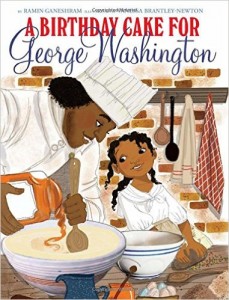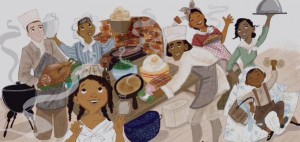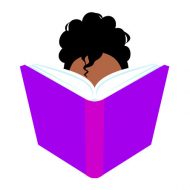Last week, the National Coalition Against Censorship and the Office for Intellectual Freedom of the American Library Association released statements questioning Scholastic’s decision to pull A Birthday Cake For George Washington from publication, on the grounds that doing so was an act of censorship.
They’re both confused.

There is no censorship when there is no government actor. It should be noted that the ALA post actually acknowledges this fact … before promptly ignoring it. Scholastic is not the government. Therefore, their decision to pull the book is not infringing any “freedoms.” In fact, it would probably be a violation of Scholastic’s and their employee’s rights to force them to release the book.
There could be a censorship issue if a librarian (at a public library) or a school wanted to remove the book. If that were the case — and the ALA post clearly states that the 40-something libraries that bought the book are unlikely to return the book — then there could be a First Amendment issue.
In that instance, a court would likely look at the motivations behind pulling the book. For example, if a librarian removed a book about a family with gay parents because she thinks homosexuality is a sin. In the past, courts have found this motivation to be unconstitutional.
This is just a guess, but I would imagine that to challenge the removal of this book would fail on two fronts. First, there are several valid (i.e. that don’t violate the constitution) reasons why this book should be removed; the facts that Scholastic recalled it and the fact that it’s a historically inaccurate children’s history book jump to mind. If a publisher released a math book that was filled with errors, they would recall that shit.
Second, a challenge would have to show injury. For example, the removal of the book at our hypothetical library means that there’s no way for people to read it. This seems unlikely, given that there are 40-plus libraries with copies of this book. If a library didn’t have a copy, they could just order it via interlibrary loan should someone want it.
But again, this is all just hypothetical. This is a case of the publisher choosing to recall a book. The ALA and the NCAC are throwing censorship in there to confuse the issue.
The National Coalition Against Censorship stated:
While critics hailed the withdrawal of the book as a victory, it should raise serious questions about whether censorship, even when it is self-censorship, is ever a ‘win.’
No, it shouldn’t. Further, what exactly does “self-censorship” mean in this context? Scholastic, a company with shareholders, chose to avoid a scandal by pulling an unpopular book. Sounds like a very sound business move.
The American Library Association also wrote:
So, does the withdrawal of a book by the publisher constitute censorship? Or – to look at it another way that can also be defended — is the book’s withdrawal rather evidence of a long-overdue responsiveness to the many issues of diversity?

Again, the withdrawal of a book by the publisher does not constitute censorship. But look at how they juxtapose a factually incorrect statement with a representation issue (I’ll get back to how they phrased this in a moment).
They’re linking the two with the phrase “to look at it another way that can also be defended.” This phrasing implies that both of these arguments (Scholastic is censoring and Scholastic is woke) are legitimate.
Just to reiterate (in case anyone forgot), that first position is factually incorrect [Ed: Kind of like the book it’s trying to defend!]. It shows me their mindset on the second argument: that diversity and representation are nebulous concepts one can speculate on without any knowledge.
And let’s talk about that second argument for a second: “Is the book’s withdrawal rather evidence of a long-overdue responsiveness to the many issues of diversity?”
What the fuck does this sentence fragment mean? Like, seriously? What are they trying to say here? That Scholastic pulled the book because … diversity? Can they really not figure out why people were upset with this book? Or do they simply not think it’s a valid reason?

Wow. Those pictures are creepy. They make me thing of some horrible place where people are drugged into subservience, not even allowed the freedom of their own thoughts.
Of course, I know that’s not really what it is. It’s propaganda to make white folks like me feel less bad about our nations history, that we might preserve our national pride in our “founding father”. To sugar coat slavery as if slaves were just all part of the family. I don’t know if that’s what the author intended. Too much for me to know, but that’s likely the effect it would have on children too young, too innocent, and to unlearned to question it.
Hopefully it had the opposite on older folk though. That just reminded me that George Washington was, in fact, a slave owner… and it was probably nothing like those pictures.